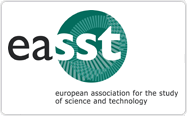The Patient 2. Many
About Diseases that Remain and the Different Forms of Knowledge to Live with Them
DOI:
https://doi.org/10.23987/sts.55300Abstract
The emancipation of patients, their organisation and their participation in medical research and health care policy has expanded tremendously. With these successful attempts at participation, however, there is one problem that has so far hardly been articulated and seems to be unrecognized in conceptions of the Patient 2.0 as an informed and active patient. This is the assumption that there is only one kind of knowledge that matters to patients, and to which they can contribute: biomedical knowledge. The paper explores different kinds of knowledge that patients need to engage with in their life with chronic disease, and articulates a particular form of knowledge – patient knowledge – as a form of practical knowledge that patients use and develop in order to relate to medical knowledge and live their daily lives with disease. The analysis of a small webcam community of Dutch patients with an incurable lung disease will show that patients need to translate medical knowledge in order to make it useful to their daily lives, and need to coordinate health care aims with other aims in life. Rather than looking for ways to legitimate their knowledge, patients try out strategies that may work in specific situations, even if temporarily. The paper argues for a better support of the development of patient knowledge and the practices for developing it, rather than singularly equipping people with medical knowledge that is often oriented towards cure rather than towards living with a disease that will not go away.





